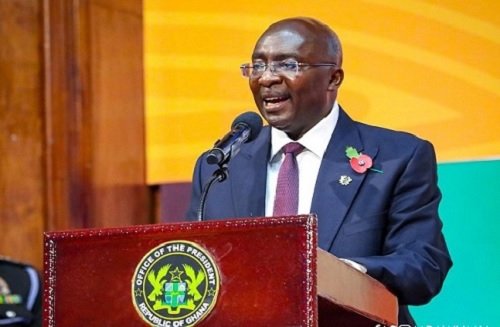
Reflections on Dr Bawumia’s Speech (II)
In Part I of my reflections on Dr Bawumia’s speech delivered on February 7, I concluded the speech - a) struck the right partisan tone; b) acknowledged the economic pinch points Ghanaians have felt; c) did not adequately and in a direct way, reconcile the force of the many arguments and assertions made in 2016 with eventual economic realities; and d) was not very measured in the number of campaign promises.
Advertisement
In Part II, I turn to the politics of the speech.
The Context
Presidential aspirants must contend with two performance records – theirs or the parties.
If the aspirant is an incumbent seeking re-election, the emphasis is on their own - Rawlings (1996), Kufuor (2004), and Mahama (2016).
If the aspirant is an opposition candidate, they are likely to reference their party’s previous record of performance in office or what they will do differently than the incumbent if elected- Kufuor (1996 and 2000); Mills (2004 and 2008); and Akufo Addo (2012 and 2016).
John Mahama’s situation is slightly different.
Although the main opposition candidate, he gets to combine his own record, as well as the promise to do differently if elected.
Dr Bawumia is also in a unique situation.
He is the first Vice-President to be elected presidential candidate to succeed a term-limited president from his own party.
As such, he must contend with the incumbent president’s record in office and the extent to which he contributed to that record or not.
This creates a dilemma for him.
I must add that it is a political dilemma that vice-presidents in other jurisdictions who find themselves in similar situations face.
The Political Dilemma
Let me illustrate this dilemma with data from the Afrobarometer Survey.
Notice that the year 2017 represents the best years of positive public perceptions of this administration.
Since then, those positive public perceptions have plummeted.
This is where the political dilemma emerges.
How so?
The question is how does the Bawumia campaign position itself in the face of such public perceptions?
Keep in mind that the NDC regularly describes this administration as “The Akufo-Addo/Bawumia government.”
They also never miss an opportunity to point out his role as head of the Economic Management Team.
One cannot, therefore, help but ask where the President’s record begins and ends and where Dr Bawumia’s culpability begins and ends.
It is a delicate balancing act and I have been saying all along that the challenge for Dr Bawumia is how to balance the two without also appearing to “throw” this government under the bus.
A government he has been part of in very important roles.
In my view, it takes collective effort in any administration to be able to implement policies and programmes.
And the successes and challenges must, therefore, be shared.
Since the speech, the public commentary is that Dr Bawumia is putting a distance between himself and the record of this administration.
Two paragraphs in the speech, immediately come to mind and does lend some credence to this reaction.
First, there are fiscal policies of this government that he plans to discontinue such as abolishing the E-Levy (paragraph 155).
However, choosing a different policy path from the current administration, in my opinion, is not necessarily a distancing act from the current President.
Yes, political parties appreciate policy continuity, but it is not unusual to have policy differences and a desire to chart a different course.
Besides, the Vice-President did not indicate changing course on the signature policies and programmes rolled out by this administration even as he touted a list of his own.
Second is the description of the role of the Economic Management Team as an advisory body without decision-making authority (Paragraph 64).
This has been reinforced by key voices who support his bid for the presidency.
This is a rewriting of the narrative about the Economic Management Team.
The role of this team was amplified in the lead-up to the 2016 elections and beyond.
There are some things that have life cycles longer than the life cycle of elections.
And I hope that when Election 2024 is settled, the conventional wisdom we have come to hold true and accept about the Economic Management Team ever since it came into existence will not have suffered irreparable damage.
In Part III, I will focus on key policy ideas proposed by Dr Bawumia.
The writer is a Democracy and Development fellow at the Ghana Centre for Democratic Development (CDD-Ghana)




